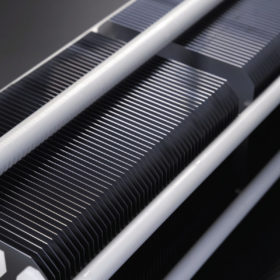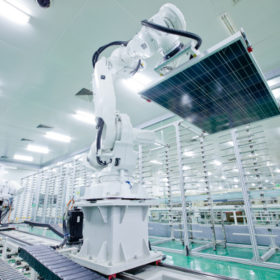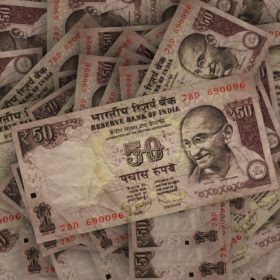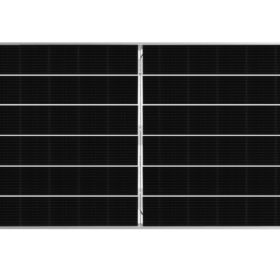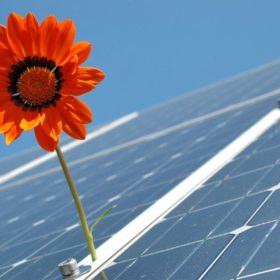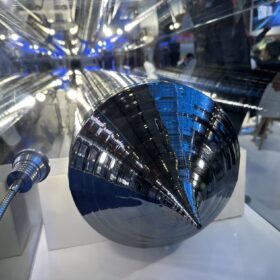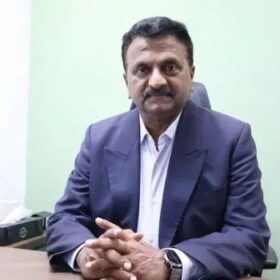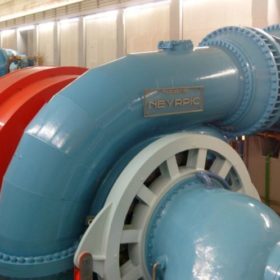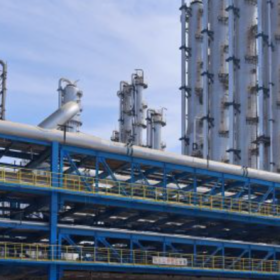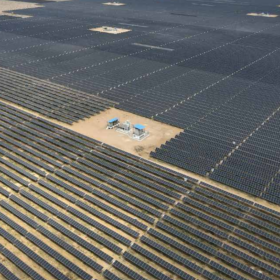Innovation promises cheaper solar cell glass manufacturing
Indian scientists have developed a hybrid production method combining metal mesh and a metal-oxide layer over a glass substrate which they say brings down production cost by 80% compared to the tin-doped, indium oxide-based technology currently in use.
The long read: Carriers key for quality cell surfaces
The path to lower solar LCOE can be painful; just ask a PV manufacturer. However, ever-larger crystalline wafers may cause more pain than they are worth, argues Gerry Knoch, the managing director of wet bench provider exateq. For high efficiency, eliminating cross contamination in wet processes is vital and can be achieved – with carriers playing an important role.
China’s JinkoSolar the biggest module supplier to India in first quarter
All the JinkoSolar PV modules shipped to India during January to March period of 2020 are based on mono PERC technology, comprising full-cell and half-cell modules.
Covid-19 impact: Acme Solar wants to abandon record-low solar price tariff
The developer wants to cancel the power purchase agreement it signed in 2018 for a 600 MW project awarded at a tariff of Rs2.44/kWh, as it fears Covid-19-affected commissioning of the project will stretch beyond the six-month extension from the scheduled date enshrined in the agreement.
Jinko launches PV module with record output of 580 W
The panel is part of the company’s new Tiger Pro series, which includes two 530 W modules and a 430 W product for distributed-generation applications. It will begin production of the series in the fourth quarter, although it will start accepting first orders immediately.
New method for life cycle assessment of PV technologies
Researchers in Australia have conducted a ‘cradle to grave’ life cycle assessment (LCA) of the four most widely used PV technologies. The academics say that cadmium telluride solar modules have the lowest life cycle impact, followed by amorphous, multi and monocrystalline silicon products.
Most module makers willing to kickstart cell production—Loom Solar founder
As importing solar cells becomes costlier and time-consuming in the Covid-19 scenario, most of the module manufacturers in India are eyeing solar cell production—says Loom Solar co-founder and director Amol Anand in an interview with pv magazine.
The long read: Understanding LeTID
Light- and elevated temperature-induced degradation (LeTID) of PV cells can have far-reaching impacts on the efficiency of modules. Alison Ciesla and Brett Hallam of the University of New South Wales argue that accelerated testing, such as that included in the forthcoming IEC standards, is critical for LeTID identification and quantification in order to manage these impacts.
Bidding extended for BOS package of 735 MW Nokh solar project in Rajasthan
June 11 is the new deadline to bid for supply of the balance-of-system (BOS), installation and commissioning of 735 (3×245 MW) Nokh Solar Park project in Jaisalmer district.
India’s electric vehicle component market to grow 22% per year for a decade
The market will be driven by shared-mobility electric car deployment and will see annual growth of up to 61.7% for battery management systems.

